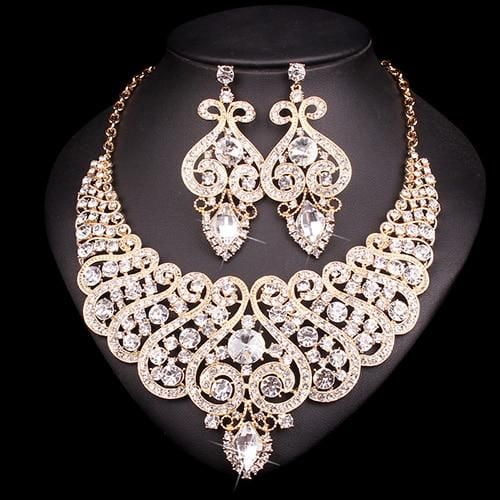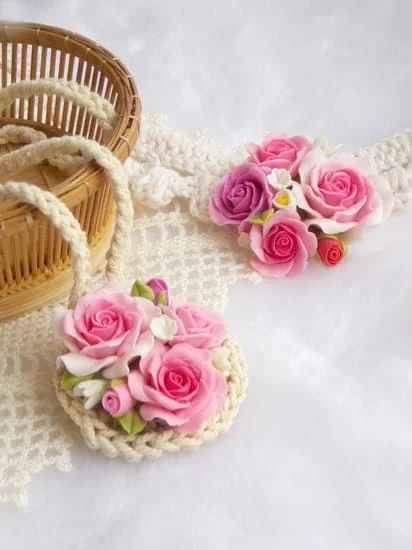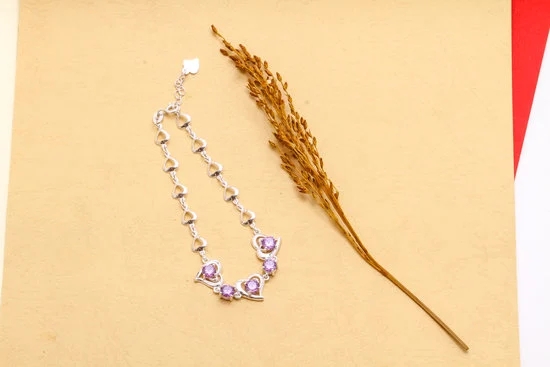The demand for ethical affordable jewelry is on the rise, as consumers become more conscious of the social and environmental impact of their purchases. In today’s society, it is important to consider both ethical sourcing practices and affordability aspects when buying jewelry. This article takes a comprehensive look at the world of ethical and affordable jewelry, exploring why it matters and how to find these pieces that align with our values.
Unethical sourcing practices in the jewelry industry can have devastating consequences for both people and the planet. Irresponsible mining practices contribute to environmental damage, while forced labor and unsafe working conditions are prevalent in some production processes. By prioritizing ethical sourcing, we can support responsible methods that promote ecological conservation and respect human rights. Throughout this article, we will dive deeper into how various jewelry brands are taking steps towards ethical sourcing and manufacturing.
Understanding the certifications and standards in the jewelry industry is essential for making informed purchasing decisions. Certifications such as Fairtrade, Responsible Jewellery Council, and Kimberley Process Certification Scheme play a crucial role in ensuring transparency and accountability within the industry.
We will explore what these certifications entail and highlight brands that meet their stringent criteria. By choosing certified ethical jewelry brands, not only can we make a positive impact on communities and ecosystems but also support businesses that value transparency and social responsibility.
As consumers, finding affordable options without compromising on ethics may seem challenging. However, there are numerous alternatives available that offer both affordability and sustainability. From lab-grown diamonds to recycled metals to artisanal pieces, we will delve into practical tips for finding affordable ethical jewelry. Additionally, we will introduce you to eco-friendly designers who prioritize sustainability without sacrificing style or quality.
The journey to finding ethical affordable jewelry begins here. Join us as we explore innovative materials, emerging trends, sustainable designers, and ways to balance personal aesthetics with ethical values. Let’s embark on this adventure together as conscious consumers seeking beautiful pieces with an unwavering commitment to responsibility.
The Importance of Ethical Sourcing in Jewelry Manufacturing
The jewelry industry has long been associated with unethical sourcing practices, such as the use of conflict diamonds and exploitation of workers in mines. However, in recent years, there has been a push for change and a growing demand for ethical jewelry. This section will explore why ethical sourcing is so important in jewelry manufacturing.
Irresponsible sourcing practices can have devastating consequences for both the environment and human rights. Irresponsible mining not only contributes to deforestation and habitat destruction but also pollutes rivers and soil with harmful chemicals. In addition, workers involved in unethical mining operations often face dangerous working conditions, low wages, and child labor.
Ethical sourcing aims to address these issues by ensuring that materials used in jewelry production are obtained responsibly. This includes using conflict-free diamonds and gemstones that are ethically mined or lab-grown, as well as using recycled metals to reduce environmental impact. By choosing ethically sourced materials, consumers can support sustainable practices that minimize harm to the environment and protect workers’ rights.
There are some well-known jewelry brands that have taken a stand against unethical sourcing practices. For example, Tiffany & Co., one of the most recognizable luxury jewelry brands, has implemented strict procurement standards to ensure that all their diamonds come from responsible sources.
Other brands like Brilliant Earth and Bario Neal specialize in ethically sourced gemstones and recycled precious metals. These brands serve as examples of how ethical sourcing can be achieved without compromising on quality or style, making it clear that responsible production is not only possible but also financially viable for businesses in the jewelry industry.
Understanding the Ethical Certification and Standards in the Jewelry Industry
In the jewelry industry, ethical certifications play a crucial role in ensuring that jewelry brands adhere to ethical sourcing practices. These certifications provide consumers with confidence that their purchases are promoting responsible and sustainable practices. There are several key certifications that consumers can look for when purchasing ethical jewelry.
One important certification is the Fairtrade certification. Fairtrade works to ensure fair treatment and payment of workers involved in the mining and production of jewelry materials such as gold and silver. This certification guarantees that workers receive fair wages, safe working conditions, and prohibits the use of child labor.
Another significant certification is provided by the Responsible Jewellery Council (RJC). The RJC sets rigorous standards for social, environmental, and ethical practices within the jewelry supply chain. It promotes responsible mining operations, transparent business practices, and ensures respect for human rights throughout all stages of production.
Furthermore, the Kimberley Process Certification Scheme (KPCS) focuses specifically on ethically sourced diamonds. This certification aims to prevent conflict diamonds from entering legitimate diamond market channels by implementing strict regulations and traceability systems.
To obtain these certifications, jewelry brands must meet specific criteria. For example, they may need to demonstrate their commitment to fair trade principles or provide evidence of responsible sourcing throughout their supply chains. Brands seeking certification must undergo audits conducted by independent third-party organizations to verify compliance.
Consumers can make informed choices by supporting certified ethical jewelry brands that align with their values. By opting for brands backed by reputable certifications like Fairtrade, RJC, or KPCS, individuals can contribute to positive change within the industry while enjoying beautiful pieces that hold both aesthetic and ethical value.
| Ethical Certification | Description |
|---|---|
| Fairtrade | Ensures fair treatment of workers and responsible mining practices |
| Responsible Jewellery Council (RJC) | Sets standards for social, environmental, and ethical practices in the jewelry supply chain |
| Kimberley Process Certification Scheme (KPCS) | Ensures diamonds are ethically sourced and not associated with conflict |
Tips for Finding Affordable Ethical Jewelry
When it comes to purchasing jewelry, many consumers are now seeking options that are not only ethical but also affordable. The good news is that finding affordable ethical jewelry is becoming increasingly possible as more companies prioritize sustainability and transparency in their production processes. Here are some tips for finding jewelry that is both ethically and financially accessible:
| Tip | Description |
|---|---|
| Consider lab-grown diamonds | Lab-grown diamonds are a sustainable and often more affordable alternative to mined diamonds. These diamonds have the same physical and chemical properties as natural diamonds but are created in a lab, reducing the environmental impact associated with mining. |
| Opt for recycled metals | Jewelry made from recycled metals, such as gold or silver, uses materials that have been repurposed from existing sources. This reduces the demand for newly mined metals and helps minimize the ecological footprint of the jewelry industry. |
| Explore artisanal pieces | Sourcing jewelry directly from local artisans or small-scale designers can often yield unique and affordable options. Artisanal pieces are often handmade using traditional techniques, ensuring a high level of craftsmanship while supporting local communities. |
Spotlight on Sustainable Jewelry Designers
Sustainable jewelry designers play a crucial role in the movement towards ethical and affordable jewelry. These designers prioritize sustainability and affordability in their creations, making it easier for consumers to make conscious choices when purchasing jewelry. By supporting these designers, individuals can not only enjoy stylish and unique pieces but also contribute to a more sustainable future.
One example of a sustainable jewelry designer is Sarah Wilkinson. With a background in environmental science, Wilkinson creates stunning pieces using recycled metals and ethically sourced gemstones. Her designs are known for their delicate nature-inspired motifs and attention to detail. From leaf-shaped earrings to dainty flower necklaces, Wilkinson’s collection offers an array of timeless pieces that appeal to environmentally-conscious individuals.
Another notable sustainable jewelry designer is Marcus Greenstone, who focuses on upcycling materials to create one-of-a-kind pieces. Greenstone repurposes vintage materials such as brooches and buttons to craft stunning rings, bracelets, and earrings that tell a story. Each piece is unique and carries a rich history, making them not only sustainable but also conversation starters.
Emma Martinez is another designer committed to sustainability in her creations. She specializes in using recycled glass to make eye-catching statement pieces. Martinez transforms discarded glass bottles into beautiful pendants, earrings, and bracelets that catch the light beautifully. Her collection showcases the beauty of recycled materials while promoting the importance of reducing waste.
Consumers who shop from these sustainable jewelry designers can find pieces that align with their values without compromising on style or quality. Additionally, many of these designers offer special collaborations or limited edition collections that further emphasize their commitment to sustainability.
Eco-friendly Jewelry Trends for the Ethical Shopper
Current Trends in Eco-friendly Jewelry
As the demand for ethical and sustainable products continues to rise, the jewelry industry is embracing innovative and eco-friendly practices. Today’s ethical shopper can find a variety of trendy jewelry pieces that not only make a statement but also align with their values. Let’s explore some of the current eco-friendly jewelry trends that are gaining popularity.
One prominent trend in eco-friendly jewelry is the use of recycled materials. Jewelry designers are repurposing old or unused pieces into new creations, reducing waste and minimizing the need for mining or extraction. Recycled glass, for example, can be transformed into stunning pendants, earrings, or bracelets that add a unique touch to any outfit.
Another emerging trend is the use of upcycled metals. By using reclaimed precious metals like gold and silver, jewelers can reduce the environmental impact associated with mining new materials. These upcycled metals are carefully refined and crafted into beautiful pieces of jewelry that maintain their quality while lowering their carbon footprint.
Ethically Sourced Gemstones: A Rising Trend
In recent years, there has been a surge in interest in ethically sourced gemstones among conscious consumers. Traditional mining methods often involve hazardous conditions and exploitation of workers, making responsible sourcing an essential aspect when it comes to protecting both human rights and the environment.
With this growing demand for transparency, many jewelry brands are now offering gemstones that have been ethically sourced. These gems come from mines that follow strict standards to ensure fair labor practices and minimize environmental impact.
From lab-grown diamonds to responsibly sourced emeralds or sapphires, ethical shoppers have an increasing array of options to choose from. Lab-grown diamonds, for instance, offer a more sustainable alternative to traditionally mined stones as they require fewer resources and result in significantly lower carbon emissions.
Promoting Sustainable Artisanal Jewelry
Artisanal jewelry made from natural and organic materials is another eco-friendly trend that captivates the ethical shopper. These handcrafted pieces often showcase unique designs and craftsmanship, setting them apart from mass-produced jewelry.
Materials like bamboo, wood, or even seeds are commonly used by artisans to create stunning accessories. By supporting these skilled craftspeople, consumers can contribute to the preservation of traditional techniques while promoting environmentally friendly practices.
Additionally, many artisanal brands prioritize fair trade principles, ensuring that their workers are paid fair wages and operate under safe conditions. This dual commitment to sustainability and social responsibility makes artisanal jewelry an ideal choice for the conscious consumer seeking unique and ethically made pieces.
As both the fashion industry and consumer awareness continue to evolve, ethical shoppers now have access to a wide range of trendy jewelry options crafted with eco-friendly materials and responsible sourcing practices. By embracing these latest trends in eco-friendly jewelry, individuals can express their personal style while making a positive impact on society and the environment.
Balancing Ethical Values with Aesthetics
Understanding Personal Style and Ethical Considerations
When it comes to choosing jewelry, personal style and aesthetic preferences play a significant role. However, it is crucial to strike a balance between these factors and the ethical values that align with your principles. By considering both aspects, you can make a conscious choice that reflects your unique style while also supporting ethical practices in the jewelry industry.
Understanding your personal style is the first step in finding jewelry pieces that truly resonate with you. Take some time to explore different styles, colors, and materials that appeal to you. Whether you gravitate towards minimalist designs or bold statement pieces, there are ethical options available for every taste.
Researching Ethical Jewelry Brands
To ensure that the jewelry brands you support align with your ethical values, conducting research is essential. Look for brands that prioritize transparency and social responsibility in their production processes. Many ethical jewelry brands provide detailed information about their sourcing practices, including the origin of materials and the working conditions of artisans.
Additionally, consider reviewing certifications and standards that guide ethical practices in the industry. Organizations such as Fairtrade, Responsible Jewellery Council (RJC), and Kimberley Process Certification Scheme set guidelines for sustainable sourcing and fair trade practices. Supporting jewelry brands that have obtained these certifications ensures accountability and promotes positive change within the industry.
Customization Options and Personalized Services
Finding jewelry pieces that perfectly match your style can be challenging at times. However, by supporting designers who offer customization options and personalized services, you can create unique pieces that align with both your aesthetics and ethical values.
Many eco-friendly designers are open to customizing their existing designs or creating entirely new pieces based on your preferences. This allows you to express your personal style while ensuring that the materials used meet ethical criteria.
By balancing ethical considerations with aesthetics through careful research and exploration of customization options, you can choose jewelry that enhances your personal style while supporting the ethical values that are important to you.
Ethical Jewelry Maintenance
In conclusion, ethical jewelry maintenance plays a crucial role in ensuring the longevity and care of your treasured pieces. By following proper care and storage practices, you not only extend the lifespan of your jewelry but also uphold the ethical values that are at the core of your purchase decision. It is important to remember that responsible consumption includes not only the initial purchasing decision but also how we take care of our belongings over time.
To ensure the longevity of your ethical jewelry, regular cleaning is essential. Using non-abrasive cleaners and soft brushes can help remove dirt and grime without damaging delicate gemstones or metals. Additionally, storing your jewelry in separate compartments or using individual pouches can prevent scratching and tangling. By taking these simple steps, you contribute to the sustainability of your pieces while maintaining their beauty.
In terms of social responsibility, it is important to consider the end-of-life options for your ethical jewelry as well. Disposing of jewelry responsibly means exploring recycling or reusing options rather than adding to landfill waste. Many jewelers offer recycling programs, where they can melt down precious metals and ethically sourced gemstones from old or broken pieces, creating new ones with minimal environmental impact.
By committing to ethical jewelry maintenance practices, you not only ensure that your cherished belongings will be enjoyed for years to come but also actively participate in sustainable consumption. As conscious consumers, we have the power to make a positive impact on both our own lives and on the wider world by considering every aspect of our purchasing decisions – including long-term care and disposal options for our beloved ethical jewelry.

Welcome to my jewelry blog! My name is Sarah and I am the owner of this blog.
I love making jewelry and sharing my creations with others.
So whether you’re someone who loves wearing jewelry yourself or simply enjoys learning about it, be sure to check out my blog for insightful posts on everything related to this exciting topic!





